Welcome to TEAMS magazine # 4
| By infoadmin | 0 Comments
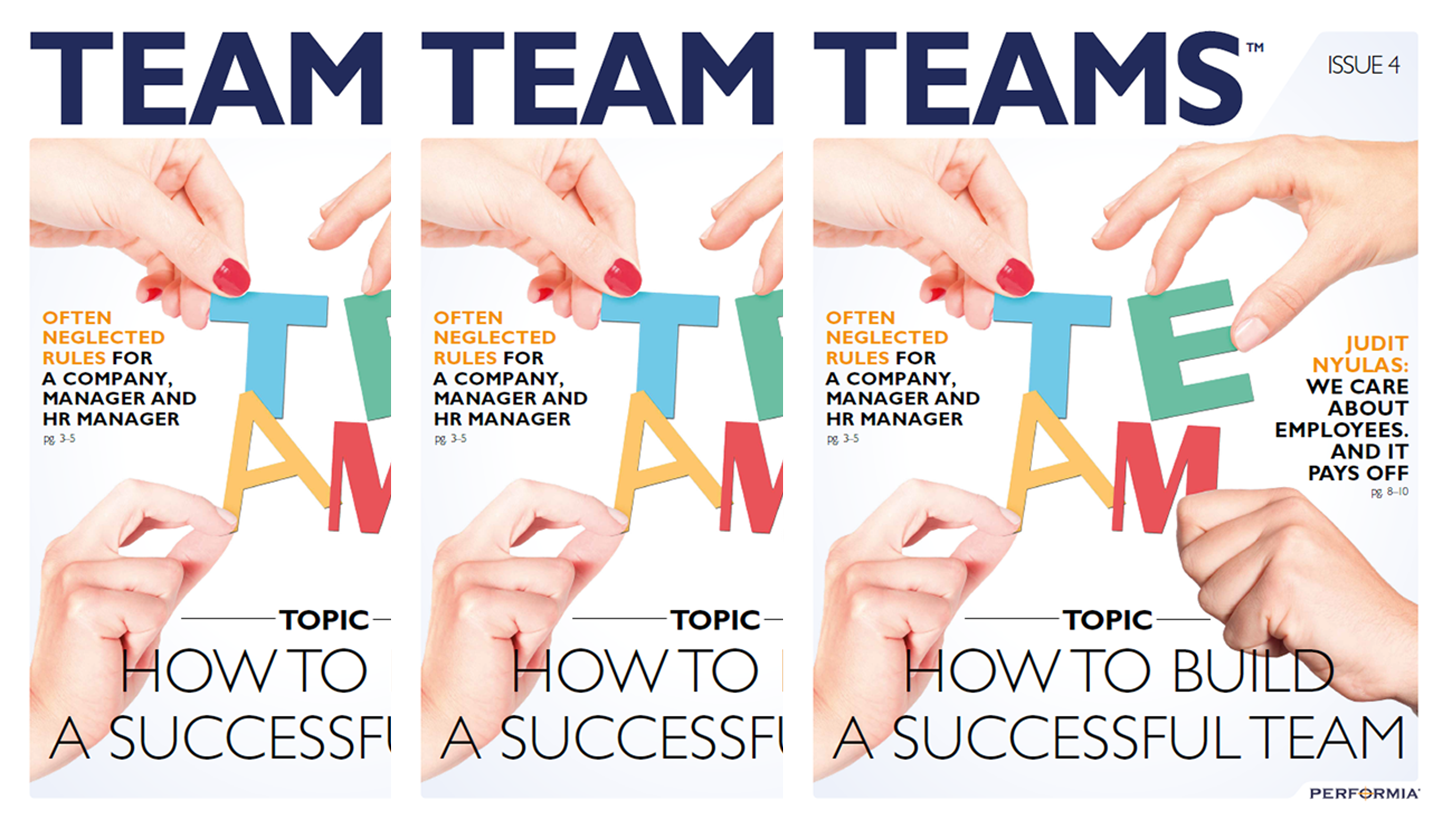
How to build a successful team
| By infoadmin | 0 Comments

How to build a successful team
| By infoadmin | 0 Comments
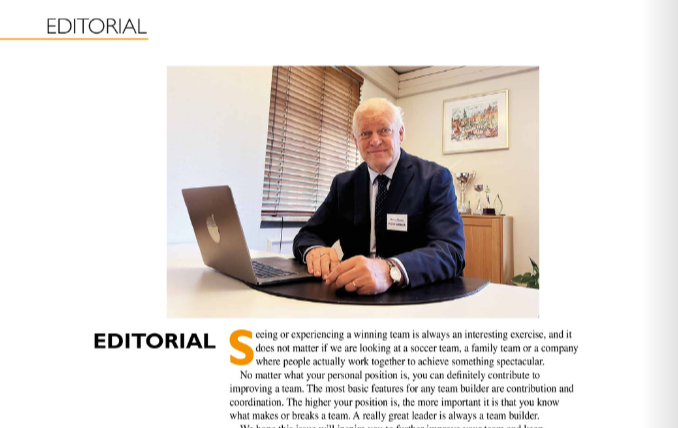
Seeing or experiencing a winning team is always an interesting exercise, and it does not matter if we are looking at a soccer team, a family team or a company where people actually work together to achieve something spectacular.
No matter what your personal position is, you can definitely contribute to improving a team. The most basic features for any team builder are contribution and coordination. The higher your position is, the more important it is that you know what makes or breaks a team. A really great leader is always a team builder.
We hope this issue will inspire you to further improve your team and keep building it. If done right, it gets to be more effective, more remunerative and a lot more fun as well.
Wishing you all the best,
Mårten Runow
CEO Performia International
| By infoadmin | 0 Comments

Often neglected rules for a company, manager and HR manager
We offer a great opportunity, an interesting position, a very good salary and even better conditions, but applicants will not choose us anyway. What else do they want? It’s not good to lose a candidate because he accepted another offer. But are the interesting candidates really just looking for better conditions? Seldom. There are several more prosaic reasons why they choose another company. Understand them and you will immediately have more skilled people.
I recently spoke with an acquaintance of mine who was looking for a new job opportunity and was in the middle of negotiating with several employers. All three companies wanted him a lot. So I was very interested in what his decision would be based on, and where he would end up. It was not so surprising that the area of work was important to him. There was one company that was “dear to his heart”, a company that he considered an inspiring brand that he highly valued as a user. Next there was a company where he really liked the product and the more he looked at it, the more enthusiastic he became. The third company was “good” in terms of what they produced, but according to him “they still give good money”. Because money wasn’t everything to him, the choice wasn’t so clear.
While he still hesitated, I asked him what went on in his head when he thought about it all. He started to tell me about the course of the hiring process, the approach of HR managers and meetings with management. Where there was no lack of money, there was a lack of humility and a human approach from a potential senior. Maybe he was really a great guy, but that doesn’t mean that his somewhat arrogant and superior attitude will dazzle anyone. This offer was out because my friend simply couldn’t imagine working with such a person, lots of money or not. And the personnel department of that company did a standard good job and, in addition to this, his rejection cost them, I believe, some worries.
So, what do candidates care about? And can only personnel or HR managers always acquire and retain an employee? This is precisely what we will look into here.
When we create TEAM it is not the same as planting a flower bed. Flowers do not need to be won over by ideas and cooperation; they just need to fulfill their life needs. Growing candidates is different. You want to show them what might excite them and what would motivate them to join you right away, but at the same time you want to vet them and you want to be able to choose the best one. It seems a little schizophrenic, but it doesn’t have to be. You just need to be clear about how to quickly evaluate the candidates and then how not to discourage those you have already chosen.
That’s why I have some rules for you that you could follow so that everything works well, and you get the best ones for your team. They don’t get discouraged then.
Support good employees in the company. I don’t mean the clichés that are well known on the different job portals, but the fact that productive workers should feel safe and perceive that their good work is valued by the company. An integral part of this is to adequately reward great work.
Does your company create a valuable and high-quality product or service? Then you are “safe” in this respect. For the best employees, your company will definitely be more interesting if your company’s product is useful, valuable and of high quality. It is not simply a “money factory” or a dubious way of making money based, for example, on the misfortune or ignorance of others. In that case, no method of hiring executive people would work well.
 RULES FOR THE HR DEPARTMENT
RULES FOR THE HR DEPARTMENTFast, pleasant and honest dealings are appreciated by every candidate, and since the HR department often creates the applicant’s first experience with your company, this is quite important. For example, responding to all non-advancing /qualifying candidates should be the standard. An unbiased approach to a candidate, and having a genuine interest in him, is something that can convince him that he is in the right place.
Responsible and professional selection with a screening of key parameters delivers the whole importance of things. It should also not be forgotten that the candidate does not know the company standards and the process tenders, so it is good to be prepared and explain them to him patiently.
Don’t compromise, don’t try to please at all costs and don’t be afraid to reject the candidate. These are certainly signs of one’s firm integrity, which is important for gaining natural respect with both candidates and colleagues from the rest of the company.
The basic idea is that the manager should look for potential in the candidate during the hiring process, and not only shortcomings
For a manager at any level, if they really value the work of everyone in the team and also the work of HR, it will not be difficult for them to find a new employee. The basic idea is that the manager should look for potential in the candidate during the hiring process, and not only shortcomings. If the candidate is qualified and preselected by HR, then the manager should put aside his “technical approach” to people.
Are the managers themselves clear about whom they are looking for, and do they also make this clear to your HR department? Thinking “it’s common knowledge” can be a big mistake. A change in requirements or a major change in job content can discourage candidates. Sufficient communication between HR and candidates, and managers and HR, is a must today. Overall, the recruiting process should have a high priority. It is a fact that we do not have time to spare, but it is also evident that the manager tends to devote the greatest amount of time to problematic (often poorly selected) employees. So, the time invested in quality selection pays off many times over.
A manager who is looking for candidates for his team should be open during interviews; he should take an interest in candidates and get them excited about their future position. The “World Champion” game might appeal to a few individuals, but if you’re after honest and work-oriented candidates, then be yourself. Tell them what you are trying to achieve, and where you would like to move the team or the company. What style of working with people has or has not paid off for you. Don’t forget that the manager of the potential newcomer should mention the reason why he is doing the job. It is possible that “the right ones” will share his reason with him.
If the company, HR dept. and managers have the right habits, they do not put any barriers between themselves and new skilled employees. And that will increase the chances that the candidates you select will choose you.
| By infoadmin | 0 Comments
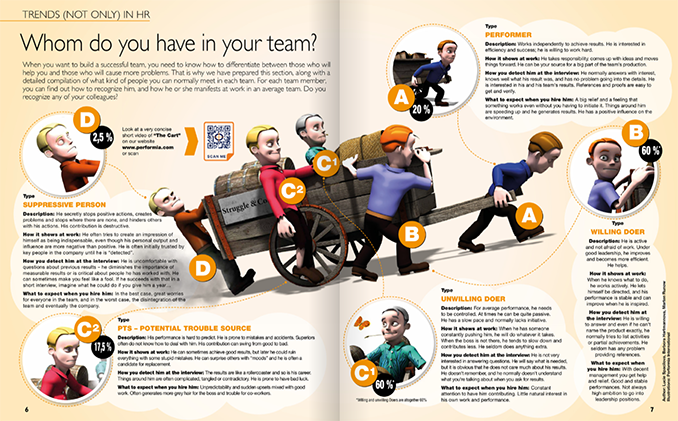
When you want to build a successful team, you need to know how to differentiate between those who will help you and those who will cause more problems. That is why we have prepared this section, along with a detailed compilation of what kind of people you can normally meet in each team. For each team member, you can find out how to recognize him, and how he or she manifests at work in an average team. Do you recognize any of your colleagues?
2,5%
Description: He secretly stops positive actions, creates problems and stops where there are none, and hinders others
with his actions. His contribution is destructive.
How it shows at work: He often tries to create an impression of himself as being indispensable, even though his personal output and influence are more negative than positive. He is often initially trusted by key people in the company until he is “detected”.
How you detect him at the interview: He is uncomfortable with questions about previous results – he diminishes the importance of measurable results or is critical about people he has worked with. He can sometimes make you feel like a fool. If he succeeds with that in a short interview, imagine what he could do if you give him a year…
What to expect when you hire him: In the best case, great worries for everyone in the team, and in the worst case, the disintegration of the team and eventually the company.
17,5%
Description: performance is hard to predict. He is prone to mistakes and accidents. Superiors often do not know how to deal with him. His contribution can swing from good to bad.
How it shows at work: He can sometimes achieve good results, but later he could ruin everything with some stupid mistakes. He can surprise others with “moods” and he is often a candidate for replacement.
How you detect him at the interview: The results are like a rollercoaster and so is his career. Things around him are often complicated, tangled or contradictory. He is prone to have bad luck.
What to expect when you hire him: Unpredictability and sudden upsets mixed with good work. Often generates more grey hair for the boss and trouble for co-workers.
20%
Description: Works independently to achieve results. He is interested in efficiency and success; he is willing to work hard.
How it shows at work: He takes responsibility, comes up with ideas and moves things forward. He can be your source for a big part of the team’s production.
How you detect him at the interview: He normally answers with interest, knows well what his result was, and has no problem going into the details. He is interested in his and his team’s results. References and proofs are easy to get and verify.
What to expect when you hire him: A big relief and a feeling that something works even without you having to initiate it. Things around him are speeding up and he generates results. He has a positive influence on the environment.
60%
Description: For average performance, he needs to be controlled. At times he can be quite passive. He has a slow pace and normally lacks initiative.
How it shows at work: When he has someone constantly pushing him, he will do whatever it takes. When the boss is not there, he tends to slow down and contributes less. He seldom does anything extra.
How you detect him at the interview: He is not very interested in answering questions. He will say what is needed, but it is obvious that he does not care much about his results. He doesn’t remember, and he normally doesn’t understand what you’re talking about when you ask for results.
What to expect when you hire him: Constant attention to have him contributing. Little natural interest in his own work and performance.
60%
Description: He is active and not afraid of work. Under good leadership, he improves and becomes more efficient. He helps.
How it shows at work: When he knows what to do, he works actively. He lets himself be directed, and his performance is stable and can improve when he is inspired.
How you detect him at the interview: He is willing to answer and even if he can’t name the product exactly, he normally tries to list activities or partial achievements. He seldom has any problem providing references.
What to expect when you hire him:With decent management you get help and relief. Good and stable performances. Not always high ambition to go into leadership positions.
| By infoadmin | 0 Comments
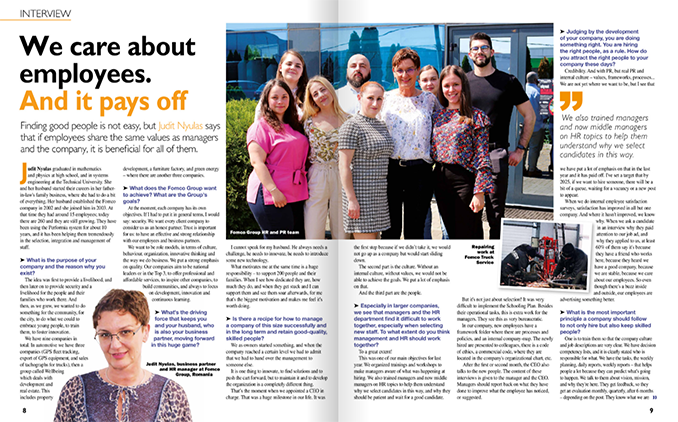
Finding good people is not easy, but Judit Nyulas says that if employees share the same values as managers and the company, it is beneficial for all of them
Judit Nyulas graduated in mathematics and physics at high school, and in systems engineering at the Technical University. She and her husband started their careers in her father-in-law’s family business, where she had to do a bit of everything. Her husband established the Fomco company in 2002 and she joined him in 2003. At that time they had around 15 employees; today there are 260 and they are still growing. They have been using the Performia system for about 10 years, and it has been helping them tremendously in the selection, integration and management of staff.
The idea was first to provide a livelihood, and then later on to provide security and a livelihood for the people and their families who work there. And then, as we grew, we wanted to do something for the community, for the city, to do what we could to embrace young people, to train them, to foster innovation.
We have nine companies in total. In automotive we have three companies (GPS fleet tracking, export of GPS equipment, and sales of tachographs for trucks), then a group called Wellbeing which deals with development and real estate. This includes property development, a furniture factory, and green energy – where there are another three companies.

At the moment, each company has its own objectives. If I had to put it in general terms, I would say: security. We want every client company to consider us as an honest partner. Trust is important for us: to have an effective and strong relationship with our employees and business partners.
We want to be role models, in terms of culture, behaviour, organization, innovative thinking and the way we do business. We put a strong emphasis on quality. Our companies aim to be national leaders or in the Top 3, to offer professional and affordable services, to inspire other companies, to build communities, and always to focus on development, innovation and continuous learning.
I cannot speak for my husband. He always needs a challenge, he needs to innovate, he needs to introduce some new technology.
What motivates me at the same time is a huge responsibility – to support 200 people and their families. When I see how dedicated they are, how much they do, and when they get stuck and I can support them and see them soar afterwards, for me that’s the biggest motivation and makes me feel it’s worth doing.
 Is there a recipe for how to manage a company of this size successfully and in the long term and retain good-quality, skilled people?
Is there a recipe for how to manage a company of this size successfully and in the long term and retain good-quality, skilled people?We as owners started something, and when the company reached a certain level we had to admit that we had to hand over the management to someone else.
It is one thing to innovate, to find solutions and to push the cart forward, but to maintain it and to develop the organization is a completely different thing.
That’s the moment when we appointed a CEO in charge. That was a huge milestone in our life. It was the first step because if we didn’t take it, we would not go up as a company but would start sliding down.
The second part is the culture. Without an internal culture, without values, we would not be able to achieve the goals. We put a lot of emphasis on that.
And the third part are the people.
To a great extent!
This was one of our main objectives for last year. We organized trainings and workshops to make managers aware of what was happening at hiring. We also trained managers and now middle managers on HR topics to help them understand why we select candidates in this way, and why they should be patient and wait for a good candidate.
But it’s not just about selection! It was very difficult to implement the Schooling Plan. Besides their operational tasks, this is extra work for the managers. They see this as very bureaucratic.
In our company, new employees have a framework folder where there are processes and policies, and an internal company-map. The newly hired are presented to colleagues, there is a code of ethics, a commercial code, where they are located in the company’s organizational chart, etc.
After the first or second month, the CEO also talks to the new people. The content of these interviews is given to the manager and the CEO. Managers should report back on what they have done to improve what the employee has noticed, or suggested.
We also trained managers and now
middle managers on HR topics tho help them
kunderstand why we select candidates in this way.
Credibility. And with PR, but real PR and internal culture – values, frameworks, processes… We are not yet where we want to be, but I see that we have put a lot of emphasis on that in the last year and it has paid off. I’ve set a target that by 2025, if we want to hire someone, there will be a bit of a queue, waiting for a vacancy or a new post to appear.
When we do internal employee satisfaction surveys, satisfaction has improved in all but one company. And where it hasn’t improved, we know why. When we ask a candidate in an interview why they paid attention to our job ad, and why they applied to us, at least 60% of them say it’s because they have a friend who works here, because they heard we have a good company, because we are stable, because we care about our employees. So even though there’s a buzz inside and outside, our employees are advertising something better.

One is to train them so that the company culture and job descriptions are very clear. We have decision competency lists, and it is clearly stated who is responsible for what. We have the tasks, the weekly planning, daily reports, weekly reports – that helps people a lot because they can predict what’s going to happen. We talk to them about vision, mission, and why they’re here. They get feedback, so they get an evaluation monthly, quarterly, after 6 months – depending on the post. They know what we are satisfied with and what we are not satisfied with. Bonus system KPIs* are set up. If you produce more, you get more. There are a lot of little elements that are necessary to keep them.
I have been using them for 10 years. I was the pioneer in Romania. Together we improved and translated the systems. After all these years of experience, our managers trust the Performia System. It’s very, very helpful when we evaluate the tests. What we see in the candidate’s results is confirmed in about half a year at the most.
People are confronted with why they do what they do, and why they are more sensitive to particular situations. It’s very important for me to know these things, and for them to know them, because it makes it easier for them to get through difficult situations.
I couldn’t imagine working without the Performia tests. They have been proven over the years and I trust these tests. It’s not just that I trust them, it’s that I objectively have the results. It is confirmed. And I can see in people’s eyes at training sessions how much it means to learn about people, how much it means to understand how people are selected and how people behave. It helps not only within the company but in your personal life.
Choose them well, trust them,
delegate, hold their hand at the beginning
and then gradually let go.
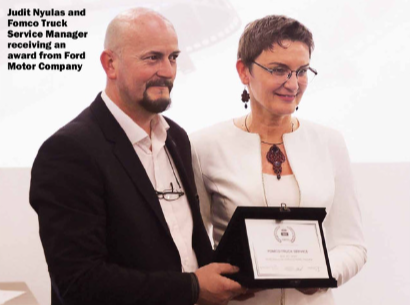
Leading by example. For example, we have a code of ethics. It was created by the employees themselves with supervision and support. There were a few core values that came from the owner, but beyond that, the behaviour, the dress code, etc. came from them, it’s theirs. This was demonstrated in a team-building session.
With the right support. Choose them well, trust them, delegate, hold their hand at the beginning and then gradually let go. Expecting them to work independently and letting them make mistakes, which we correct together. If I give out a job, it will never be done as if I did it, because everyone does it a little differently. They do tasks that I can’t do anymore: Facebook, Instagram, and organizing presentations at universities. Usually, company managers are invited to these universities, but I recommended that HR people should go because they are closer to young people. They share their own experiences, and the audience sees that they have been interviewed on TV, radio, job fairs, and how they are soaring and satisfied with what they are achieving.
*KPI = Key Performance Indicator
Thank you very much, Judit Nyulas, I wish you good luck in your activities. ■
| By infoadmin | 0 Comments
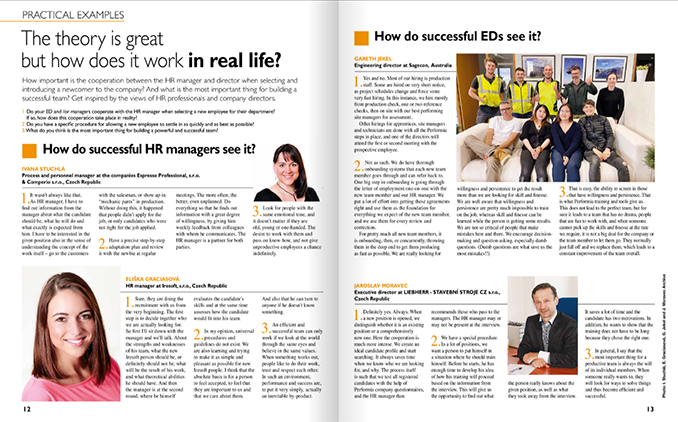
How important is the cooperation between the HR manager and director when selecting and introducing a newcomer to the company? And what is the most important thing for building a successful team? Get inspired by the views of HR professionals and company directors.



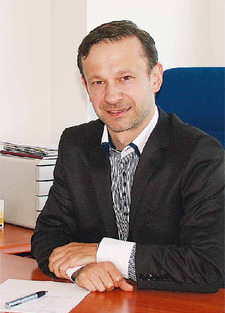
| By infoadmin | 0 Comments
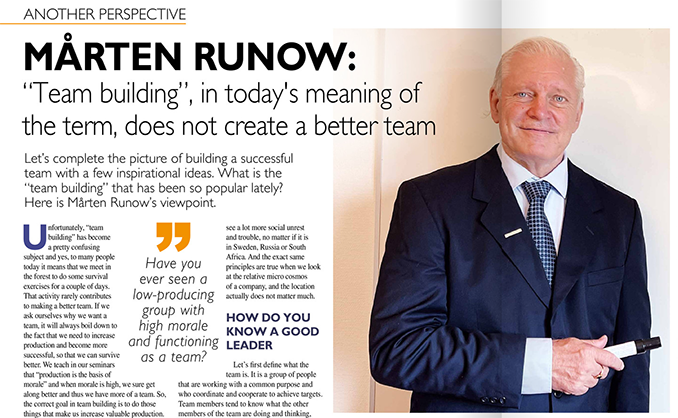
Let’s complete the picture of building a successful team with a few inspirational ideas. What is the “team building” that has been so popular lately? Here is Mårten Runow’s viewpoint.
Unfortunately, “team building” has become a pretty confusing subject and yes, to many people today it means that we meet in the forest to do some survival exercises for a couple of days. That activity rarely contributes to making a better team. If we ask ourselves why we want a team, it will always boil down to the fact that we need to increase production and become more successful, so that we can survive better. We teach in our seminars that “production is the basis of morale” and when morale is high, we sure get along better and thus we have more of a team. So, the correct goal in team building is to do those things that make us increase valuable production. Have you ever seen a low-producing group with high morale and functioning as a team? I have not.
Because Performia now operates in over 30 countries on all continents, I have had an opportunity to see with my own eyes how the principles of production and its connection to “team spirit” and decency are the same, no matter where you look. In Taiwan for example there is almost no unemployment, and they have a culture that supports and expects production from all people who are physically able to work. When their production peaked, criminality was extremely low. In areas where incentives to produce get taken away, you will inevitably see a lot more social unrest and trouble, no matter if it is in Sweden, Russia or South Africa. And the exact same principles are true when we look at the relative micro cosmos of a company, and the location actually does not matter much.
Let’s first define what the team is. It is a group of people that are working with a common purpose and who coordinate and cooperate to achieve targets. Team members tend to know what the other members of the team are doing and thinking, and they normally get along great.
From that, it follows that a great leader makes sure there is a common and known purpose for the activity and gets all members to push in that same direction. He/She makes sure there is a lot of relevant information flowing between the different departments and their people so that everyone can know how the group is doing overall. And he/she will make sure that each individual, as well as the group as a whole, is producing on a viable level. Thus “team building” is not something we do two days per year, but rather something which is an integral part of what we do every single day. If we succeed and meet our targets, we can then go for a couple of days to have fun in the forest or climb some mountains as a reward for having been a team.
Have you ever seen a low-producing group with high morale and functioning as a team?
“Team building” actually starts when you recruit new people. If you hire people who are not really interested in production but who are more interested in joining a successful company to get a high salary, it will be very, very hard for you to make team members out of those people. Not impossible but A LOT harder. Thus if you know how to attract and hire productive and willing people, you have already removed the biggest barrier to building a team.
Sure, productive people can sometimes have some different ideas and get into arguments, but if they do, they can normally sort it out rather fast (within a few minutes or max few hours) and then keep going in the right direction. When unproductive people get into conflicts, they can often make that problem into something that could consume weeks, months and sometimes even years. So, starting with people who actually like to be productive handles most of the problems that one can otherwise experience when building a team.
In a few countries such as the Czech Republic, Netherlands, Norway, etc. where there is low unemployment, some companies might have a feeling that “there are simply no productive people”. My number-one advice, in this case, is: Please don’t panic! There are always productive people ready to make a career change for one reason or the other. What you need to know is how to write close-to-perfect hiring ads that will attract highly productive people to apply. Avoid going into “auctions” for experienced people who are already working in your industry and who are only waiting for a better bid from the next company. Hiring by offering more money than the competition very seldom becomes successful. Why? Because the people you attract this way are not loyal to the company they work for but rather to the highest bidder. Also, you can lose those guys as fast as you got them, and they are surprisingly seldom productive enough to even justify the salary they are given. There are many better ways, and I urge those of you who have problems getting good candidates to contact the Performia office in your country to get advice on what to do and how to write your ads.
Great people work because they want to contribute to the team or organization they belong to. For sure, they will expect to get something decent in return, but the major motivation for the best staff is to help others. They like to produce, and instead of trying to attract them by telling them what they will get, it is more effective to tell them what they will be required to do or produce. If you can offer them a difficult task or a challenge, you have a much bigger chance of succeeding than if you offer them more money, which is the least effective method of building a better team.
What most people don’t know is that Steve Jobs, while building Apple’s team, personally conducted over 5000 personal interviews.
I always say that HR is the key to a company’s success. What is urgently important is that there is very open and clear communication between these two entities. Having an HR department that understands the importance of hiring productive people makes the lives of the managers a lot simpler. If HR can attract and establish those who are productive and skilled enough to do the job well, then I prefer if it is the manager who will decide on the final candidate. HR can provide all found data on production, ideally combined with an analysis of personality, motivation and knowledge. Ideally, both top management and HR should know the principles of perfect hiring. What most people don’t know is that Steve Jobs, while building Apple’s team, personally conducted over 5000 personal interviews. That was how important he considered hiring to be.
It doesn’t matter if you have a company as big as Apple or much, much smaller, I wish you are always able to find the right people for your team. When you succeed, your whole operation will be much easier and building a successful team will be a piece of cake.■
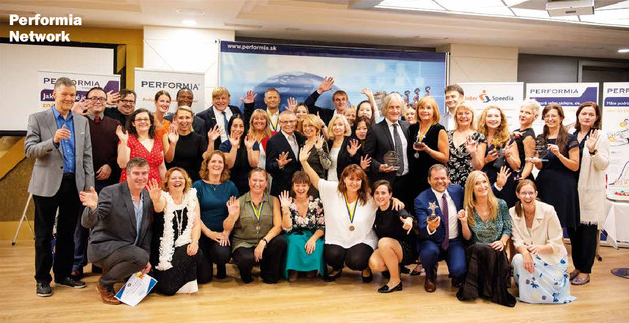
| By infoadmin | 2 Comments
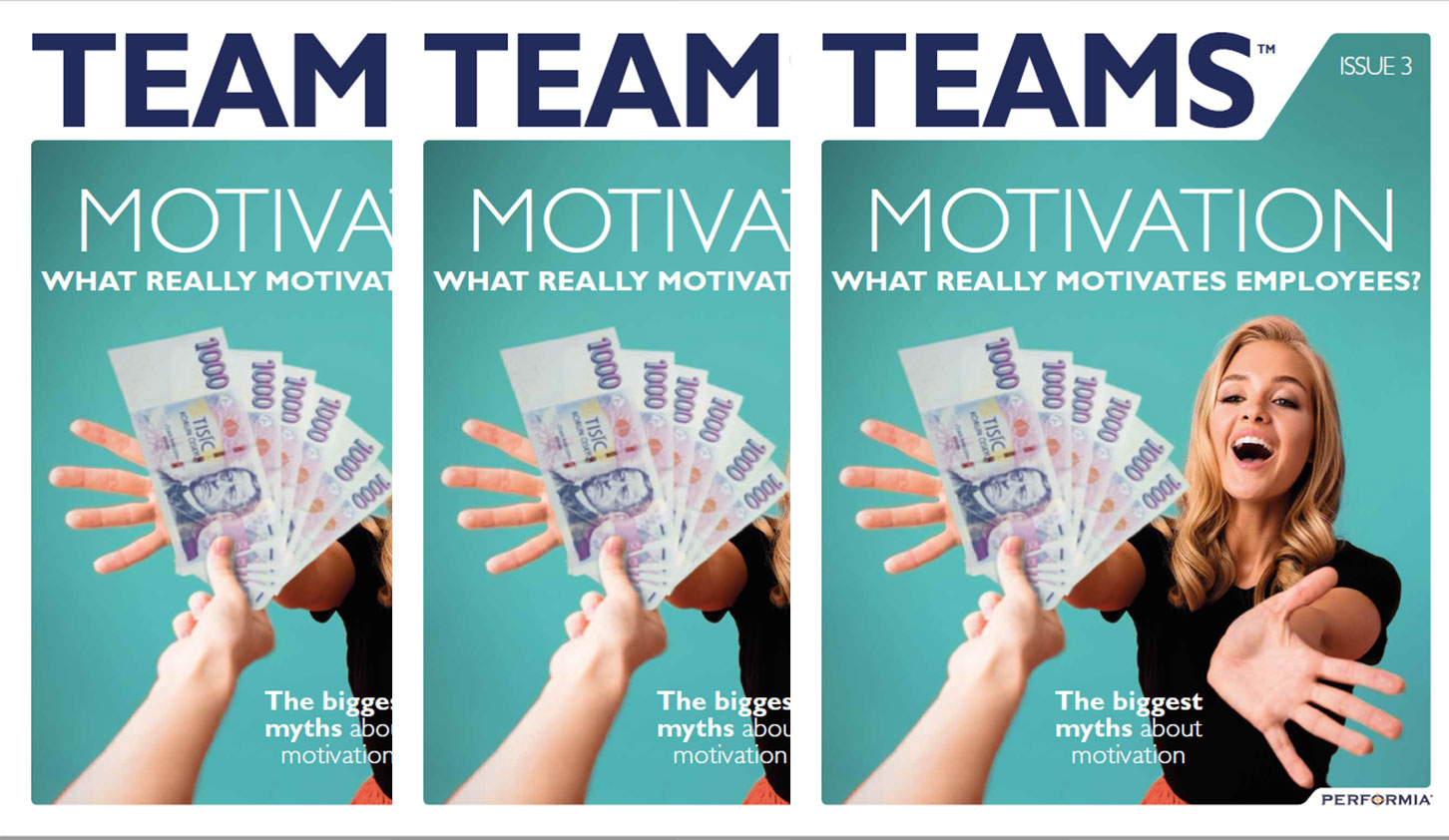
This issue is all about Motivation
| By infoadmin | 0 Comments
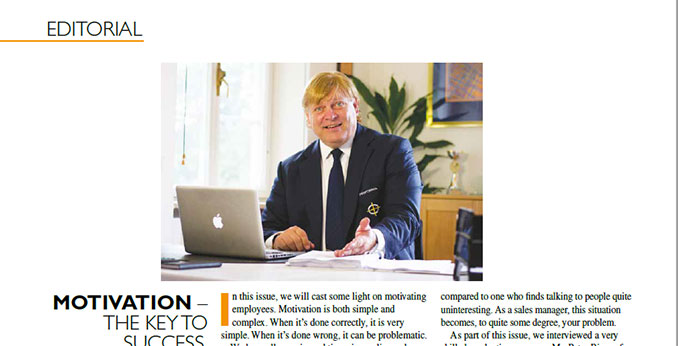
In this issue, we will cast some light on motivating employees. Motivation is both simple and complex. When it’s done correctly, it is very simple. When it’s done wrong, it can be problematic.
We have all experienced times in our lives when we were less motivated, when we were very tired of doing the same thing, when we dreaded every move. Working with no or very low levels of energy (motivation) is frustrating, and in this issue of Teams we will look more closely at the issue of motivation.
First of all, motivation comes from within the individual. When you are totally motivated there is almost nothing that will stop you from achieving your goals no matter how ambitious they are. In terms of production, we can easily see the difference between, for example, a highly motivated salesperson who loves interacting with clients and getting products compared to one who finds talking to people quite uninteresting. As a sales manager, this situation becomes, to quite some degree, your problem.
As part of this issue, we interviewed a very skilled production manager, Mr. Peter Ringer from the Czech Republic, who shares his extensive experience and success in motivating staff.
For an even more fun and productive future,
Mårten Runow
CEO Performia International
| By infoadmin | 0 Comments

“You have probably heard and read a lot about motivation. And where a lot is written about a subject there are often many myths as well.
Let’s have a look at the most common myths about motivation and how they might influence your attitude to motivating your staff or yourself.”
The word motivation has its origin in the word MOTIVE, which means ‘the reason someone does something or wants something’. Motivation is an ‘inner setting’. Money and personal benefits belong to the lowest level of motivation, but we shouldn’t condemn or ignore these. We would not expect an employee to refuse payment for work done, or benefits. The problem arises when this is the ONLY motivation. At such a low level of motivation, we know that the degree of loyalty to the company and the willingness to work is also low.
On the other hand, people whose levels of motivation are not limited to money and benefits, but include enjoying what they do, and finding meaning and fulfilment in their work, are more loyal and more cooperative overall. When the employees are wholly committed to their job, they are highly motivated. You can find more information about different levels of motivation under the section “Trends (not only) in HR”. Now let’s look more closely at the biggest myths around motivation.
This implies that every employee in a junior position works only for money/benefits, the lowest form of motivation. That also implies that there is no difference between candidates, so when it comes to motivation it does not matter who you hire. But this is not true. A person whose income is deficient cannot afford the luxury of not being motivated by money.
However, this does not apply to everyone, and I would like to sweep this myth off the table. Although employees in lower positions might not have their dream jobs, they usually have a choice, and you can tell which ones are more motivated. They are proud of their employer, they appreciate management, and they won’t allow one bad word said about the services or the goods they produce. Such employees demonstrate high levels of motivation through their interest and loyalty, which is commonly lacking in people who are motivated only by money/benefits.
OUR TIP
Did you believe this myth? No matter – here is a tip. Work on your company’s internal PR and communication and be interested in staff motivation, without prejudice. Direct your communication at those who are highly motivated, as this will raise the motivation of others.
Let’s look at this statement from a different point of view. You have probably seen many successful salespeople in your life. Not only because you bought something from them, but because they helped you and, in so doing, they added value to you and you bought from them again.
Having someone excited about your product or service is not incompatible with the desire to get paid well. And if you have a smart and fair rewards system you have an ideal scene. In this case your salespeople are more highly motivated not just by money, but by how much they can actually help their clients. And good money for the salesman is more or less automatic.
OUR TIP
Here is our next tip: Customers have many options and choices – they can choose from whom they wish to purchase goods/services. So, even though you might have very effective marketing strategies, the impression that your salesman makes on customers is vitally important. And that is why salespeople must be motivated by more than benefits or rewards.
This is another giant myth. Tools for motivation, bonus systems, team-building sessions, and loyalty rewards, are all efforts to replace internal motivation with external motivation.
At first glance, external motivation works. But the success is short-lived, and soon new and more interesting strategies have to be found. In the end, all these strategies will not change the lack of internal motivation, which will remain insufficient or non-existent.
It is therefore quite evident that the solution is not the ability of managers to use motivational tools, but rather their ability to hire employees with existing internal motivation and then to support them (but not solely) with external motivational tools.
OUR TIP
Do you want a more motivated team? Spend less time and energy on embellishing your motivational strategies, and instead invest in identifying and recruiting candidates who are internally motivated. That is the optimum game that all parties would like to play – managers, employees, and ultimately also your customers.

This is probably true, as all of us know from school. As soon as I, as a student, have as the only reason for learning something like: “good grades, because only then will my parents and my teacher leave me alone and not penalize me for my performance score,” then this is more or less manipulation. How much would a student enjoy an A grade? How much would such a student desire to know something more about the subject? Yes, this is more manipulative than motivational.
A student who is interested and knows why he wants to learn something is different, isn’t he? He is internally motivated. The fact that he succeeds is not due to grades or the praise he gets from others – which is also nice. For such a student, or let’s say an employee, grades and praise are not the main reasons why he studies or does something. He does it because he is interested in his subject or his job and enjoys being productive.
And who doesn’t want more such employees, and even students?
OUR TIP
Our tip to demolish this myth is: Be interested in and support natural (internal) motivation in your employees. This is so much more powerful than attempting to manipulate them.